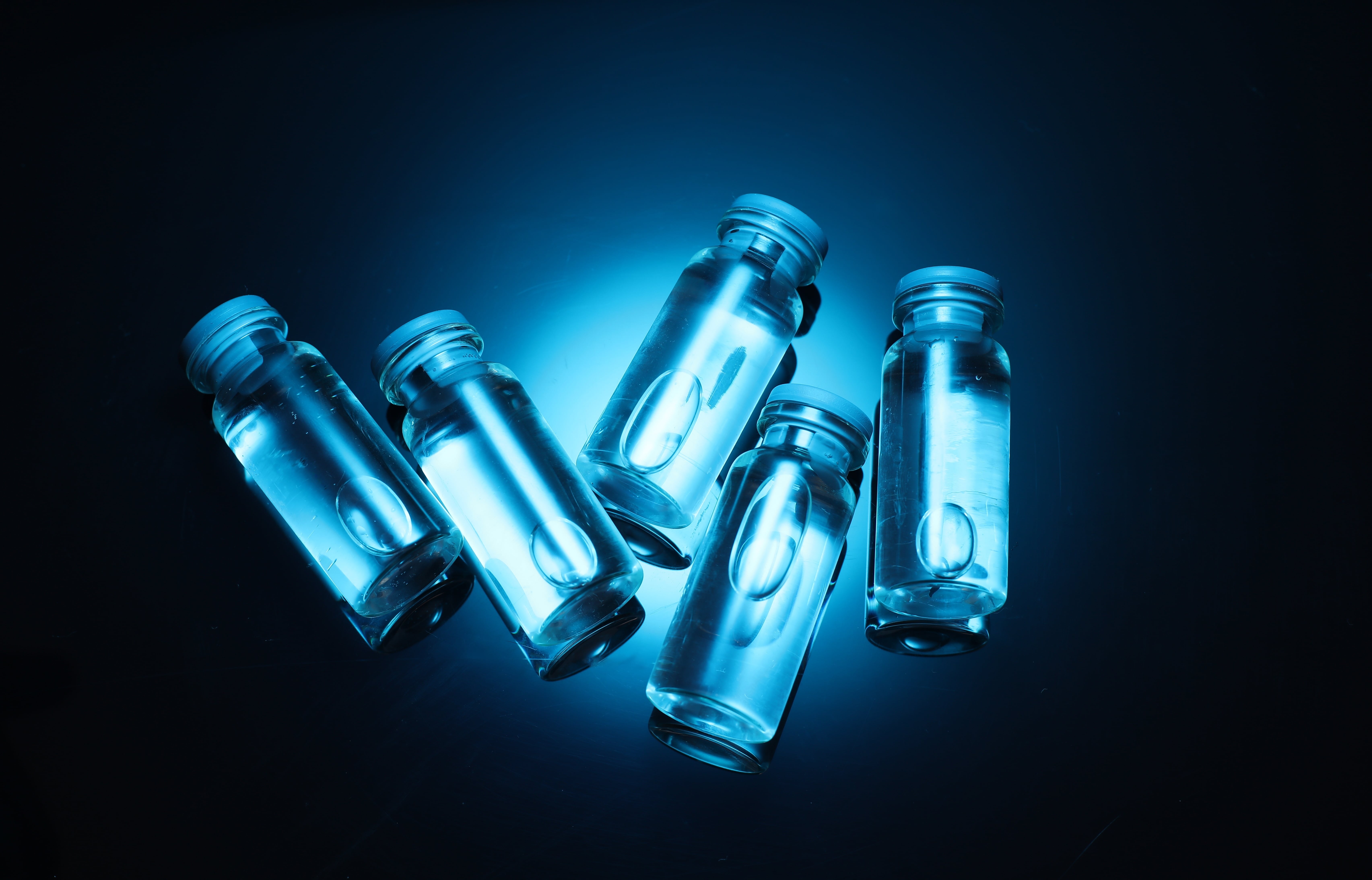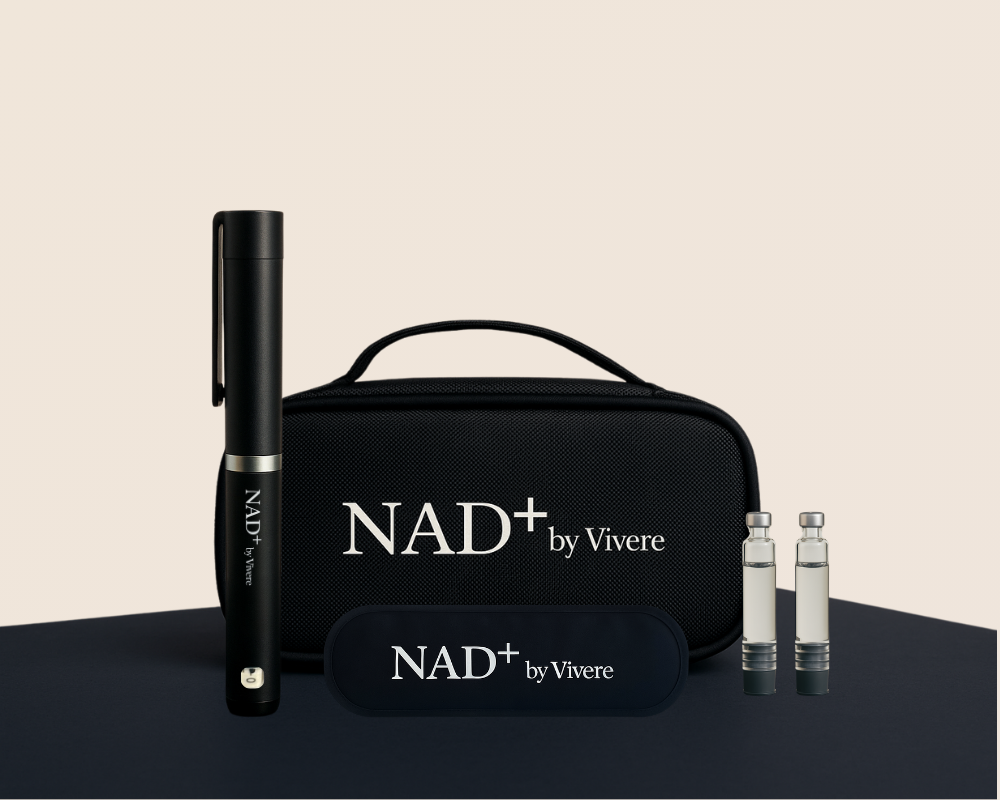Can NAD+ Be Harmful? The Key Things To Know About Its Safety
Last Updated: 02 January 2026

NAD+ (nicotinamide adenine dinucleotide) has become a popular topic in health and wellness. It is often promoted as a supplement that may support energy levels, healthy ageing and overall cellular function. However, with its popularity comes an important question: can NAD+ be harmful?
This article will explore why people take NAD+, whether supplements may carry risks, and what current research says about links to cancer and inflammation. It will also address the gaps in knowledge around its long-term safety, along with frequently asked questions about daily use, side effects, and who should avoid it.
Key Takeaways
Here are the five biggest takeaways from this article about NAD+ and whether it could be harmful:
NAD+ is a molecule that plays a crucial role in energy production, cellular repair and metabolism.
Supplements are being researched for their potential benefits in ageing, neurological health and metabolic conditions, but the evidence is still developing.
Concerns have been raised about NAD+ and cancer, although research is not yet conclusive.
NAD+ may influence inflammation, but its effects appear to depend on the context, and both positive and negative outcomes are possible.
Long-term safety data is limited, meaning caution is advised, particularly for those with existing health conditions or at higher risk of cancer.
Why do people take NAD+?
NAD+ is a coenzyme found in every cell in the body. It is essential for energy production, DNA repair, metabolism and overall cell survival. Levels of NAD+ naturally decline with age, which has led to increasing interest in supplementation to restore these levels.
Research suggests that NAD+ precursors, such as nicotinamide riboside (NR) and nicotinamide mononucleotide (NMN), may support healthy ageing and metabolic health. Some studies have shown potential benefits for conditions like neurodegenerative diseases, obesity and type 2 diabetes, though more evidence is needed to confirm these effects [1] [2].
Because of this, many people take NAD+ supplements to support energy, reduce feelings of fatigue and potentially slow age-related decline. Others seek it as part of an anti-ageing strategy, hoping to promote longevity and better overall health.
Interested in learning more about the naturally occurring molecule that supercharges the cells in your body? If so, our beginner’s guide to NAD+ is a great starting point.

Can NAD+ supplements be harmful?
While NAD+ plays a natural role in the body, taking it in supplement form is not the same as the body’s regulated production. There is currently no strong evidence suggesting that short-term use of NAD+ supplements is unsafe for most healthy people.
However, as with any supplement, risks cannot be ruled out and individuals should always consider their risks and seek professional guidance before starting new treatments, especially if they have pre-existing medical conditions. .Some people report side effects such as:
Nausea
Digestive discomfort
Mild headaches
The bigger concern lies in the lack of long-term studies. We do not yet know how prolonged supplementation affects the body over decades, which makes it difficult to say with certainty whether NAD+ is entirely safe.
NAD+ and Cancer Risk
One of the most debated concerns around NAD+ is its potential link with cancer. Because NAD+ is involved in cell survival and repair, there is a possibility that it could fuel the growth of cancer cells. Research has suggested that NAD+ production may play a role in cancer progression by supporting processes that allow cancer cells to survive and multiply [3].
This does not mean NAD+ supplements directly cause cancer, but rather that in certain contexts, particularly where cancerous changes have already begun, higher NAD+ levels may contribute to disease development.
More studies are needed to understand this relationship, and there is currently no definitive answer. People with a personal or family history of cancer may wish to be cautious.
NAD+ and Inflammation
Inflammation is a natural immune response, but chronic inflammation is linked with ageing, cardiovascular disease and cancer. Studies have shown that NAD+ can influence inflammation in complex ways.
Some suggest NAD+ can help reduce inflammation by supporting the repair of damaged cells and regulating immune function [4].
However, other research indicates that in certain circumstances, NAD+ could contribute to inflammation, which may promote disease processes [5].
This highlights that NAD+ is not particularly good or bad. Its impact depends on an individual’s health, age and underlying conditions.
The Knowledge Gap: Long-Term Safety
Perhaps the most important point to understand about NAD+ is how little we know about its long-term safety. Current studies are promising but limited. Most research has been conducted in animals or small human trials and the effects of daily supplementation over many years are unclear.
Because NAD+ supports many vital processes, it is possible that artificially boosting levels could have unintended effects over time. Until more large-scale studies are completed, it is best to approach supplementation with caution. Those considering NAD+ should seek medical advice, particularly if they have pre-existing health conditions.
Frequently Asked Questions about the Safety of NAD+
Is NAD+ safe to take daily?
Short-term studies suggest NAD+ supplements are generally well tolerated, but there is no definitive evidence about the safety of taking them every day for many years. Speaking to a healthcare professional is advised before starting daily use.
Does the colour of NAD+ mean it is harmful?
No. The colour of NAD+ supplements can vary depending on formulation, storage and manufacturing processes. Colour does not determine safety or effectiveness.
Can NAD+ cause cancer?
There is no proof that NAD+ directly causes cancer. However, because it supports cell survival, it could theoretically aid cancer progression if cancer cells are already present. More research is needed.
What are the most common side effects of NAD+ supplements?
Reported side effects include:
Mild digestive upset
Nausea
Headaches
Fatigue
These tend to be temporary and resolve with discontinued use. Severe side effects have not been widely reported.
Who should avoid NAD+ supplements?
People with cancer, a history of cancer, or chronic inflammatory conditions may wish to avoid NAD+ until more is known. Pregnant or breastfeeding women should avoid NAD+ treatment and people taking medical treatments (including patients taking GLP-1 treatments for weight loss) should also seek medical advice before use.
Nutritionist's Corner: Final Thoughts
NAD+ is an essential molecule for health, and supplements may offer benefits for energy, ageing and cell repair. However, like many emerging health trends, there are still unanswered questions about safety, particularly in the long term.
If you are considering NAD+ supplementation, such as a NAD+ injection, it is important to weigh the potential benefits against the possible risks. Speak to a healthcare professional before starting, especially if you have existing health conditions, take other medication, or have a personal or family history of cancer.
"NAD+ is a molecule the body relies on for energy, repair and survival, and for all of it’s documented benefits, supplementing it still deserves careful consideration. While early research suggests potential benefits, unanswered questions around inflammation, cancer risk and long-term safety mean NAD+ is not a simple yes-or-no decision, but one that should be guided by context, caution, and most importantly, prioritising professional advice over wellness hype".
Sources
[4] Interacting NAD+ and Cell Senescence Pathways Complicate Antiaging Therapies - PubMed
[5] Full article: NAD+ metabolism controls inflammation during senescence - Taylor and Francis
Author

Yusra Serdaroglu Aydin, MSc RD
Head of Nutrition and Registered Dietitian
Yusra is a registered dietitian with a multidisciplinary background in nutrition, food engineering, and culinary arts. During her education, her curio...
Peer Reviewed by

Emily Stuart, RD
Dietitian
Emily is a Registered Dietitian, health writer, and professional chef with a unique blend of clinical, culinary, and communication expertise. She has...